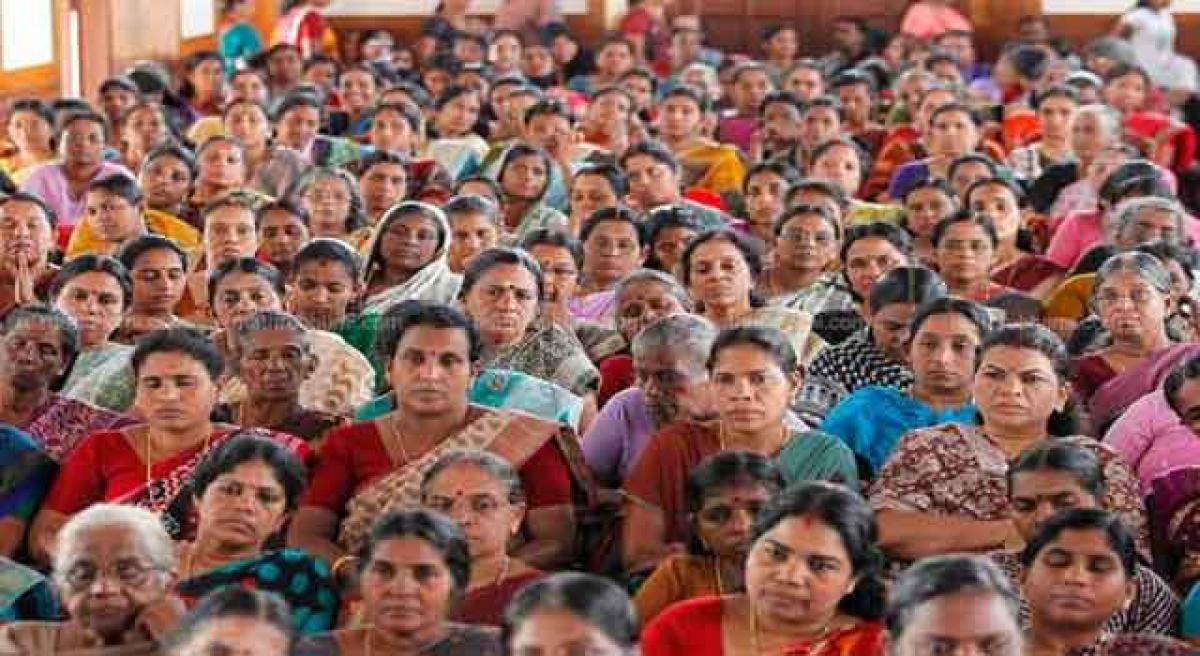Live
- MacBook Air M3 Hits Lowest Price in India: Find Details
- High Court Adjourns Hearing on Allu Arjun's Petition to 4 PM
- Pawan Kalyan praises Chandrababu Naidu at Swarnandhra Vision 2047 document launch
- Chirec International looks to transform education with Chirec 2.0 vision
- Telangana CM Revanth Reddy Responds to Allu Arjun's Arrest in Delhi
- Uddhav Thackeray to PM Modi: Pay attention to Bangladesh, act to end Hindus’ misery
- Allu Arjun Arrested: KTR Reacts on X, Calls Arrest Unfair
- Bold steps by Modi govt in reviving Indian heritage, culture: Union Minister
- What are the charges against Allu Arjun: Understanding the Charges Against Him
- Allu Arjun Objects to Arrest Procedure, Requests Breakfast and Change of Clothes
Just In

It is indeed commendable that a mere week into calling for public consultations on the National Policy for Women, the Centre’s focus is on addressing the core issue of women and girl-child threadbare. The Draft Trafficking of Persons (Prevention, Protection and Rehabilitation) Bill, 2016, mandates the government to eradicate the menace, once and for all.
It is indeed commendable that a mere week into calling for public consultations on the National Policy for Women, the Centre’s focus is on addressing the core issue of women and girl-child threadbare. The Draft Trafficking of Persons (Prevention, Protection and Rehabilitation) Bill, 2016, mandates the government to eradicate the menace, once and for all.
Coming close on the heels of a US Senate panel’s stinging criticism and an AP Minister’s ardent plea to streamline the process, the government would do well to seek views of all sections of society, especially NGOs involved in such an exercise, in order to bring about a forceful legal, economic and social environment that can eliminate the existing loopholes.
The US Senate panel and its Chairman Bob Corker have nailed it hard when wondering how India had the dubious distinction of having the world's largest enslaved population that was worsened with ‘zero-prosecution abilities and equally dismal zero-law enforcement’. Andhra Pradesh NRI Welfare Minister Palle Raghunatha Reddy poured out his anguish before External Affairs Minister Sushma Swaraj that women from Andhra Pradesh and Telangana were being sold like products in a retail shop abroad.
It is a tragic irony of our times that women are being sold in the Middle East anywhere up to a whopping Rs 4 lakh particularly to ‘willing’ buyers from Saudi Arabia, Bahrain, UAE and Kuwait. Thomson Reuters' Trustlaw Women, a group working for women's rights, noted way back in 2011 that India was among the most dangerous countries for women.
The National Crimes Records Bureau (NCRB) defines human trafficking as a group of crimes involving trafficking in person of men, women and children for sexual exploitation or for financial gains. As per its ‘Crime in India-2014’ report, a total of 5,466 crimes took place in 2014. Pit these absolutely negligible figures against the undeniable truth of millions of women and girls being subject to horrendous trafficking and one is not sure if the statistics speak the real truth.
In the circumstances, there is a compelling need for joint effort by the Centre, States and civil society to help rehabilitate the demoralised victims. Surviving foeticide and infanticide due to abject position of women in the society, thousands of girls from poor and landless Dalit and Tribal families, are being commodified to satiate the lust of innumerable men.
Deterrent punishments should be meted out to root out this entrenched inhuman practice in a country well-known for its lofty ideal of ‘Yatra naryastu pujyante ramante tatra dewatah’ (where woman is worshipped, there is abode of god). Baby steps are initiated such as involving the Railways, setting up of a child line 1098 and a Khoya-Paya web portal.
But, a stupendous amount of work requires to be done if the government is steadfast in making the country a safe place for women and ridding it of a shameful mention in the hall of shame. Mere tokenism will not suffice. There has been enough of verbose. It is time to get down to action.

© 2024 Hyderabad Media House Limited/The Hans India. All rights reserved. Powered by hocalwire.com







